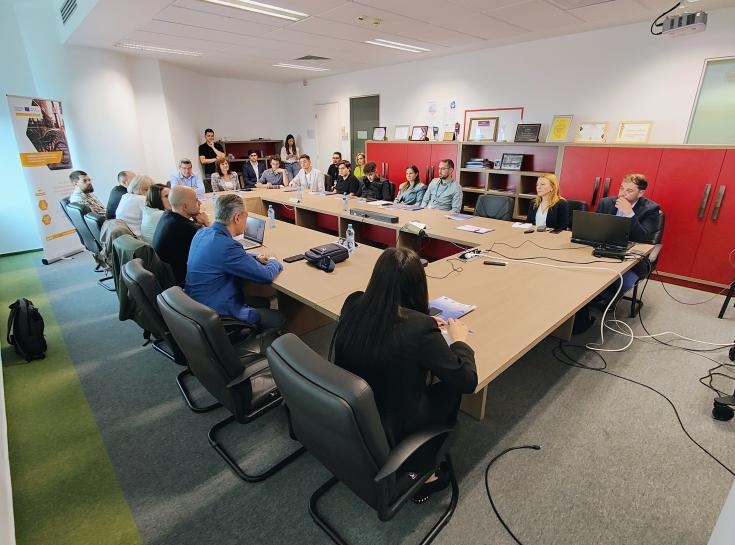First EMBRACER staff exchange meeting: lessons learned!
On May 27, 2024, the Bucharest-Ilfov Regional Development Agency organized the first meeting within the experience exchange program of the EMBRACER project. The event took place in Bucharest, at the headquarters of the Intercommunity Development Association for Public Transport Bucharest - Ilfov, with special guests being representatives of the University of Aveiro, Portugal - the coordinator of the EMBRACER project and the main stakeholders of University of Aveiro and Bucharest-Ilfov Regional Development Agency identified in accordance with the project's theme.
The main purpose of the meeting was to identify the similarities between the projects considered good practices: the Bucharest Metropolitan Train and the Mondego Metro from Portugal, but also the problems encountered during the implementation process.
The event started with a detailed presentation of the Bucharest Metropolitan Train project, which generated valuable discussions on the following common topics:
- The process of communication and cooperation with public administrations: the participants discussed effective strategies for collaboration between public administrations and the importance of maintaining a continuous dialogue for the success of infrastructure projects.
- The main obstacles encountered in the process of implementing the works according to the estimated plan: the causes of delays in the implementation of the projects were analyzed, as well as the solutions adopted to overcome these challenges.
The next topic of discussion was the presentation of the model applied in Portugal, the Mondega Metro, which provoked a technical dialogue – on how the current infrastructure of train stations can be integrated and used effectively to improve the regional public transport network; the dialogue also included topics related to the efficient organization of regional public authorities to support an efficient public transport service; the way of working and communicating with civil society in order to solve local problems.
The importance of community involvement in the decision-making process, the organization of public consultations and transparency in communication regarding public transport projects was emphasized.
The meeting gave the participants the opportunity to share their experiences and learn from each other. The importance of continuing this type of exchange of experience for the improvement of urban infrastructure and regional development projects was emphasized.

